Abstract
A series of experiments was carried out to compare several administrative systems at Achievement Place, a family style behavior modification program for pre-delinquent boys. One aspect of the motivation system at Achievement Place was the token economy in which the youths could earn or lose points that could be exchanged for privileges. Several arrangements for assigning routine tasks and for providing token consequences for task performance were compared for their effectiveness in accomplishing the tasks and for their preference by the boys. The independent variables studied included: (1) individually assigned tasks versus group assigned tasks; (2) consequences for individual performance versus consequences for group performance; (3) a peer managership that could be earned by the highest bidder versus a peer managership that could be determined democratically by the peers. The results suggested that among those systems studied the system that best met the criteria of effectiveness and preference involved a democratically elected peer manager who had the authority both to give and to take away points for his peers' performances.
Full text
PDF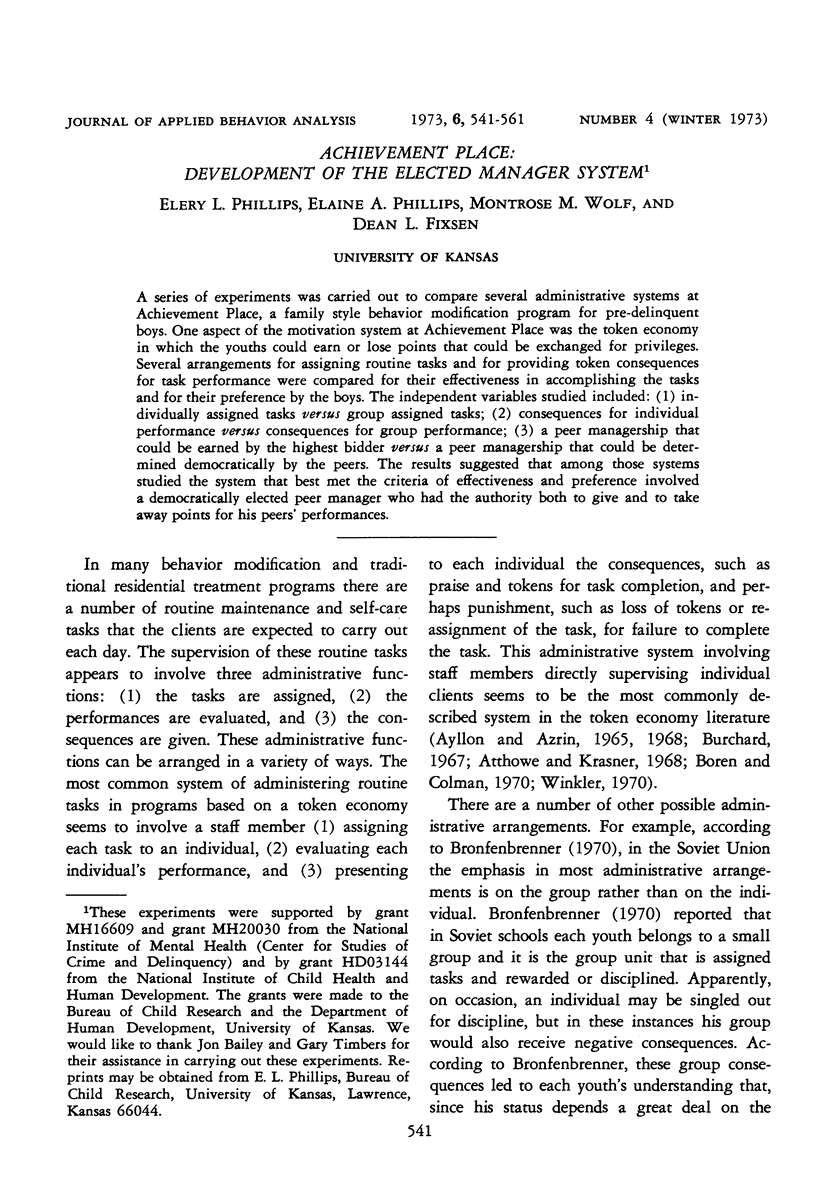
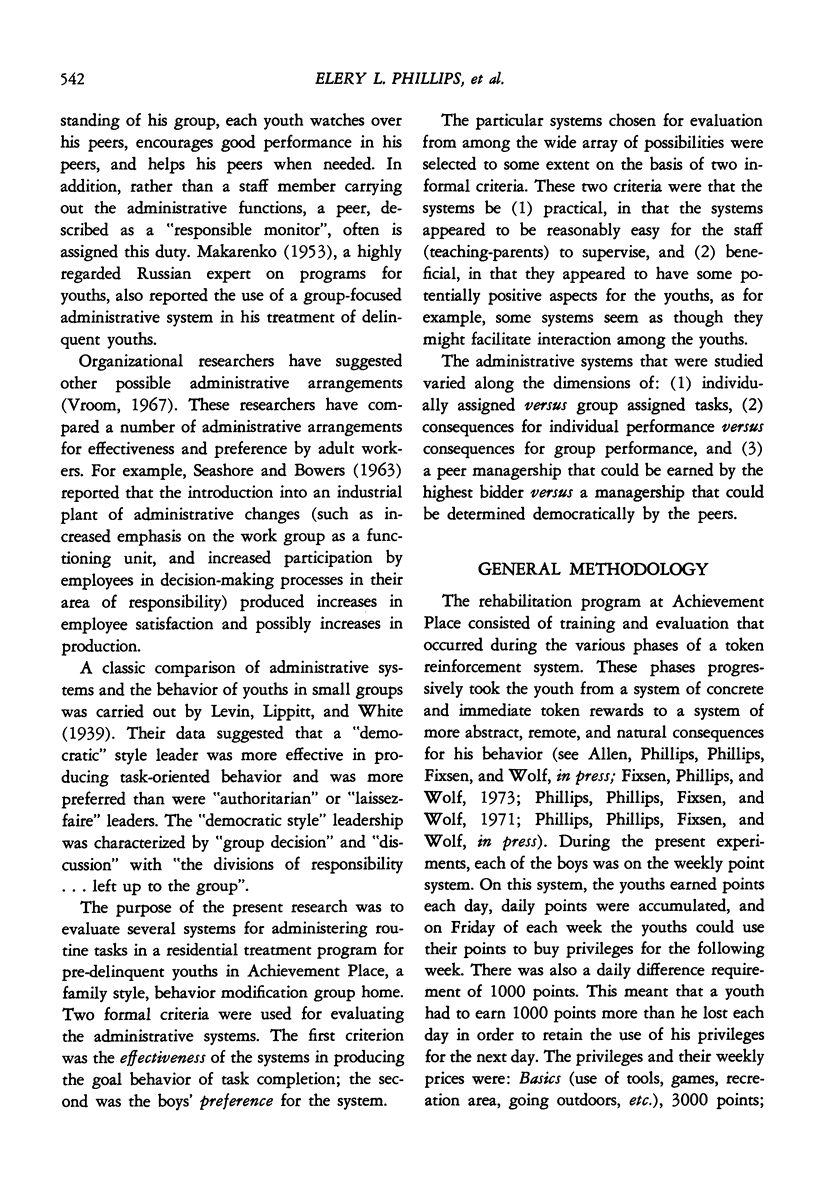
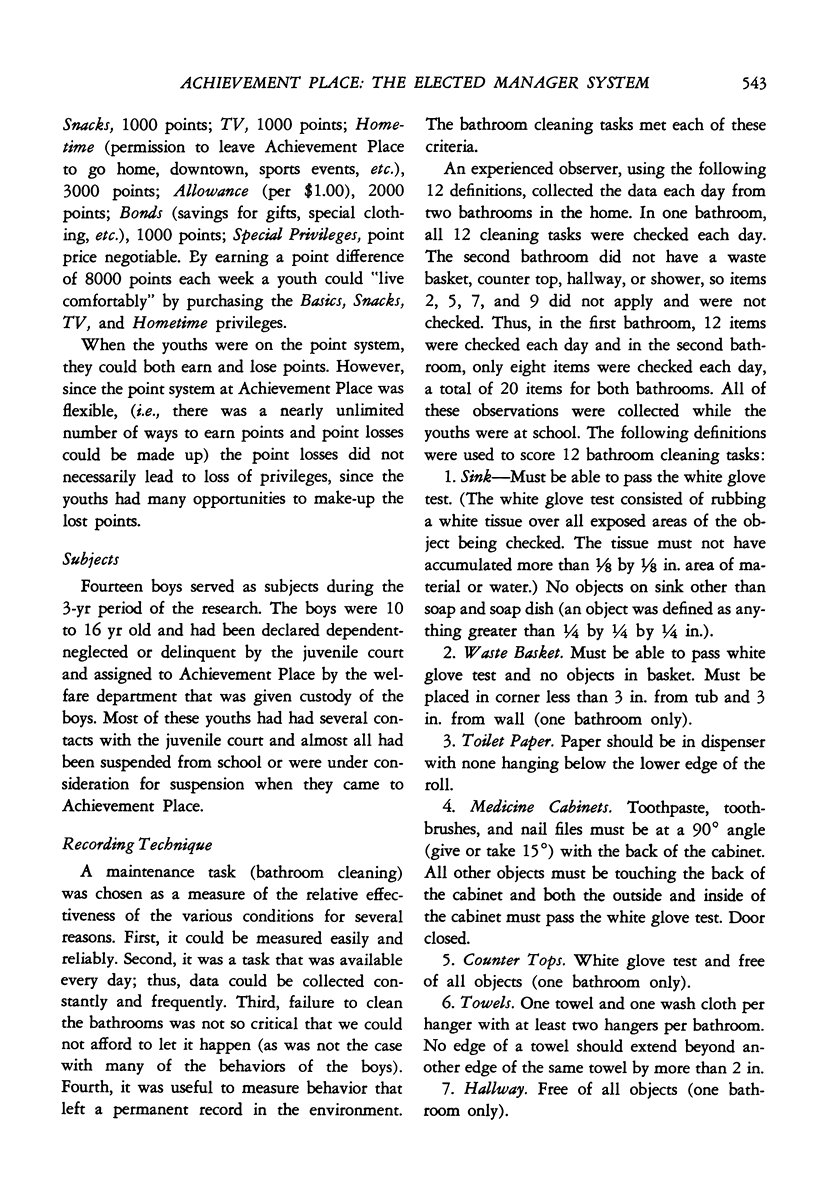
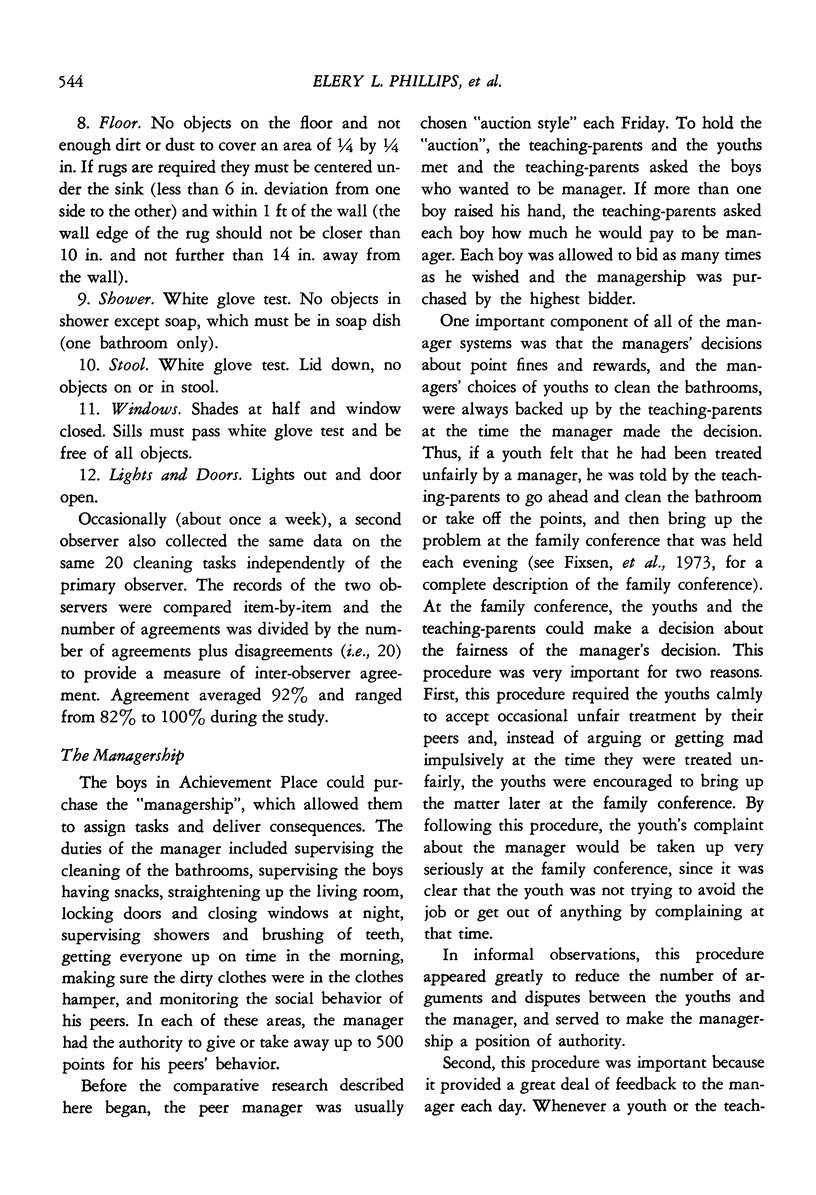
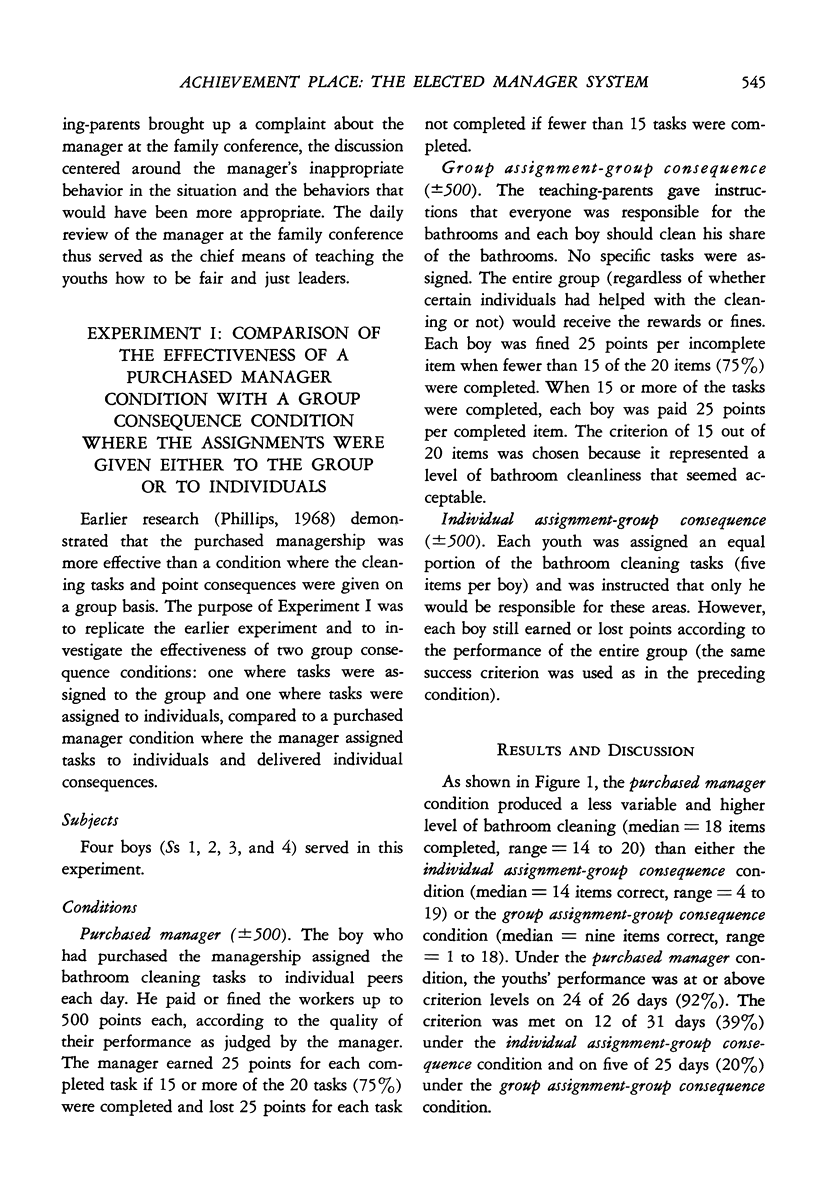
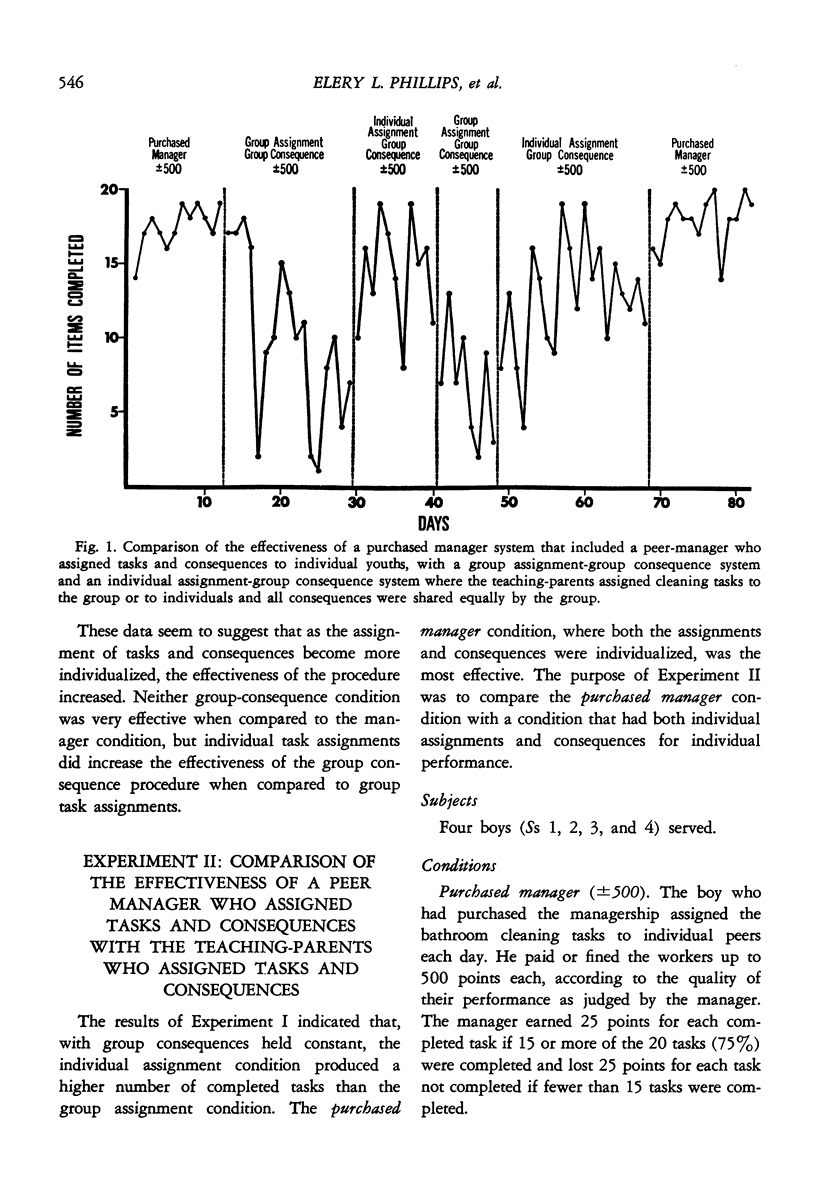
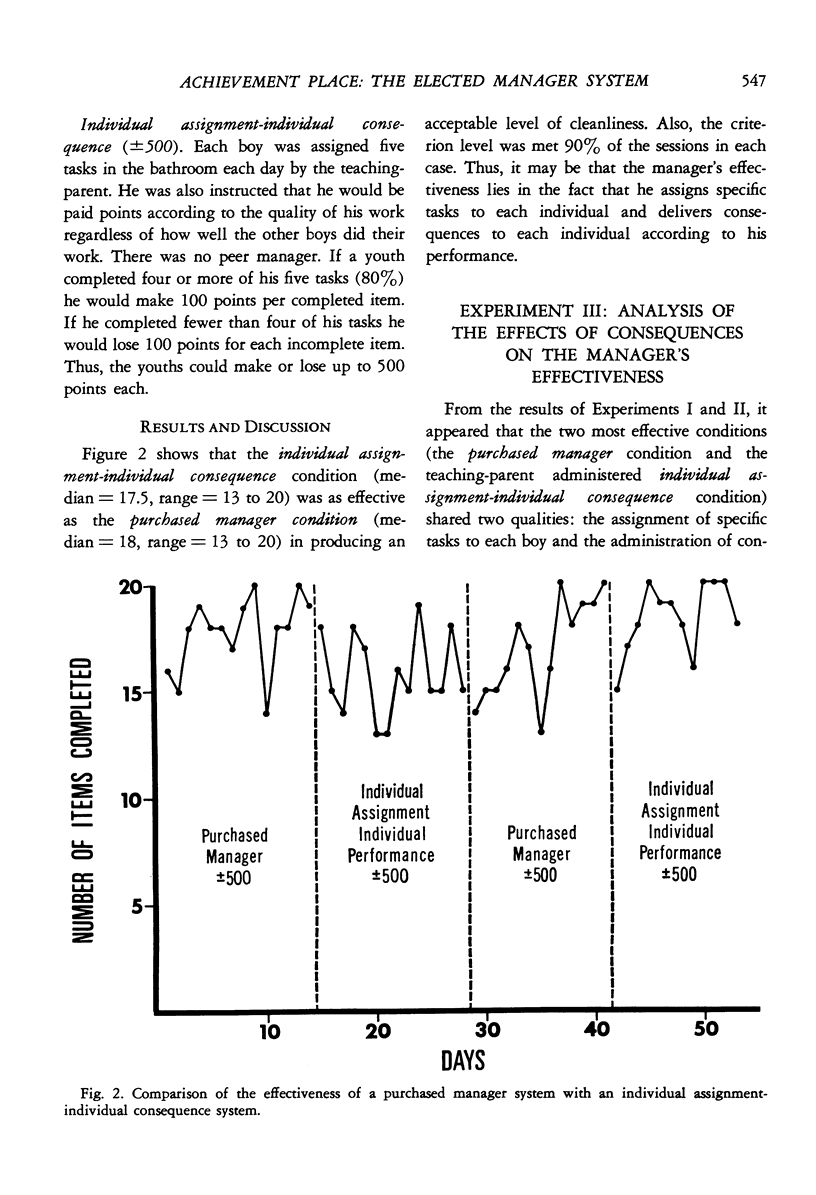
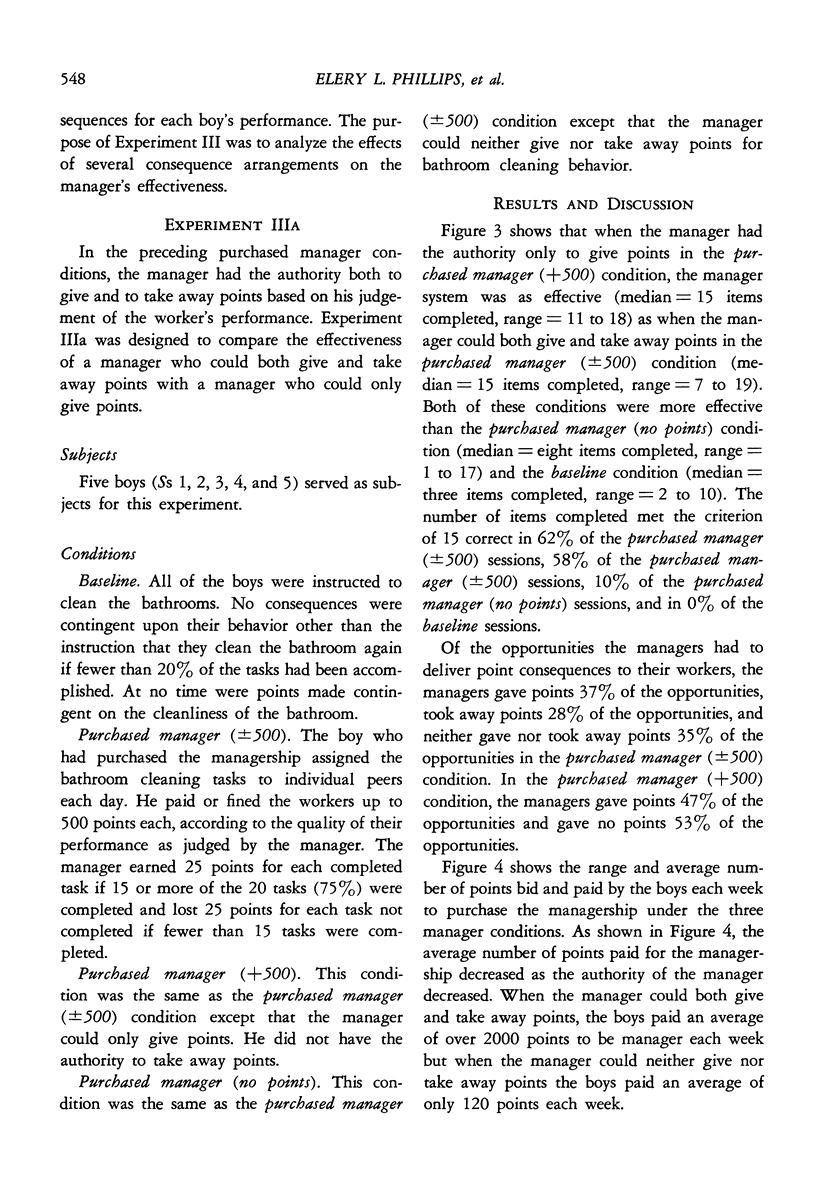
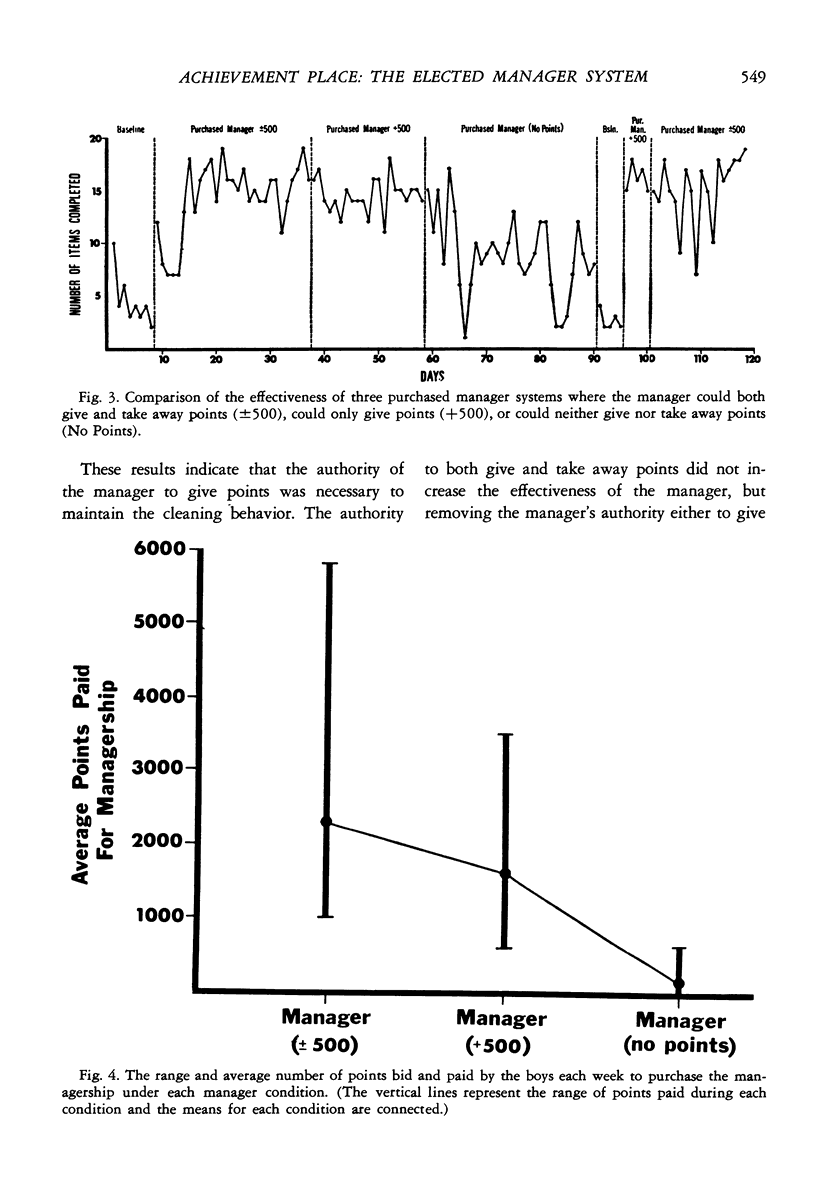
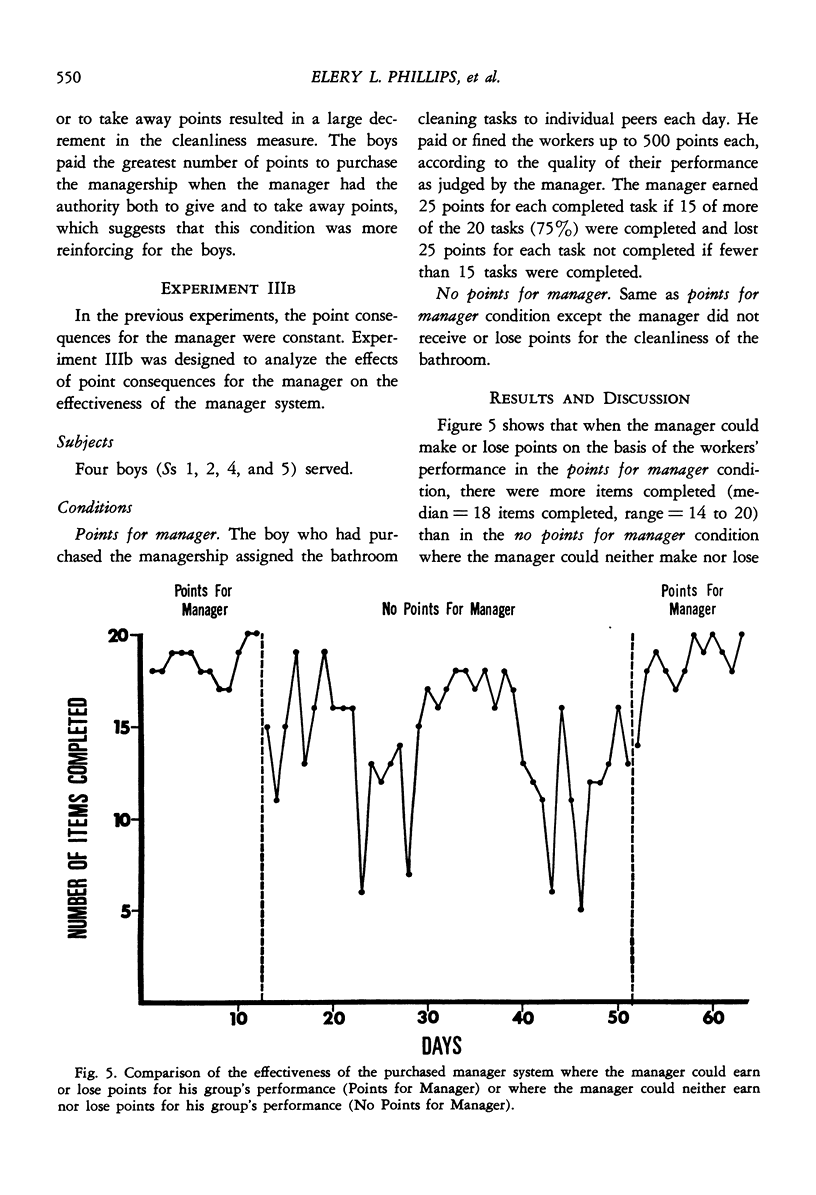
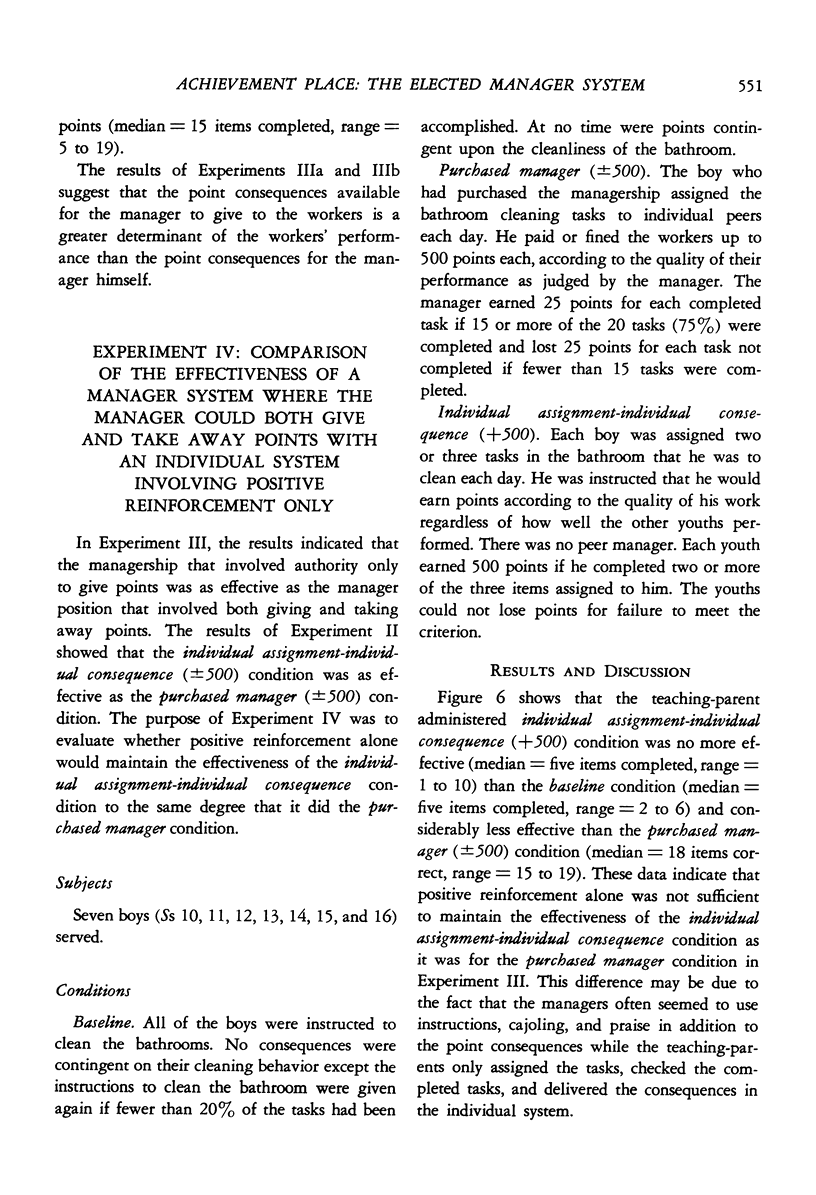
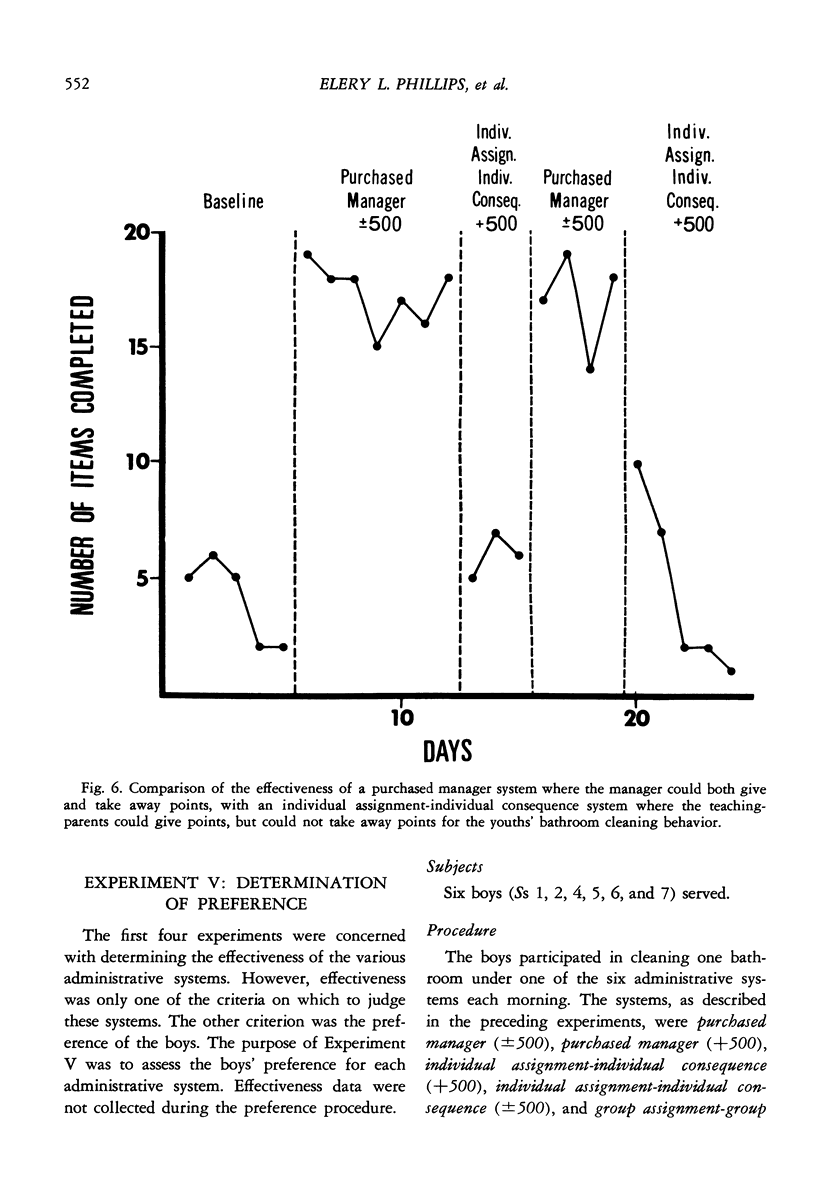
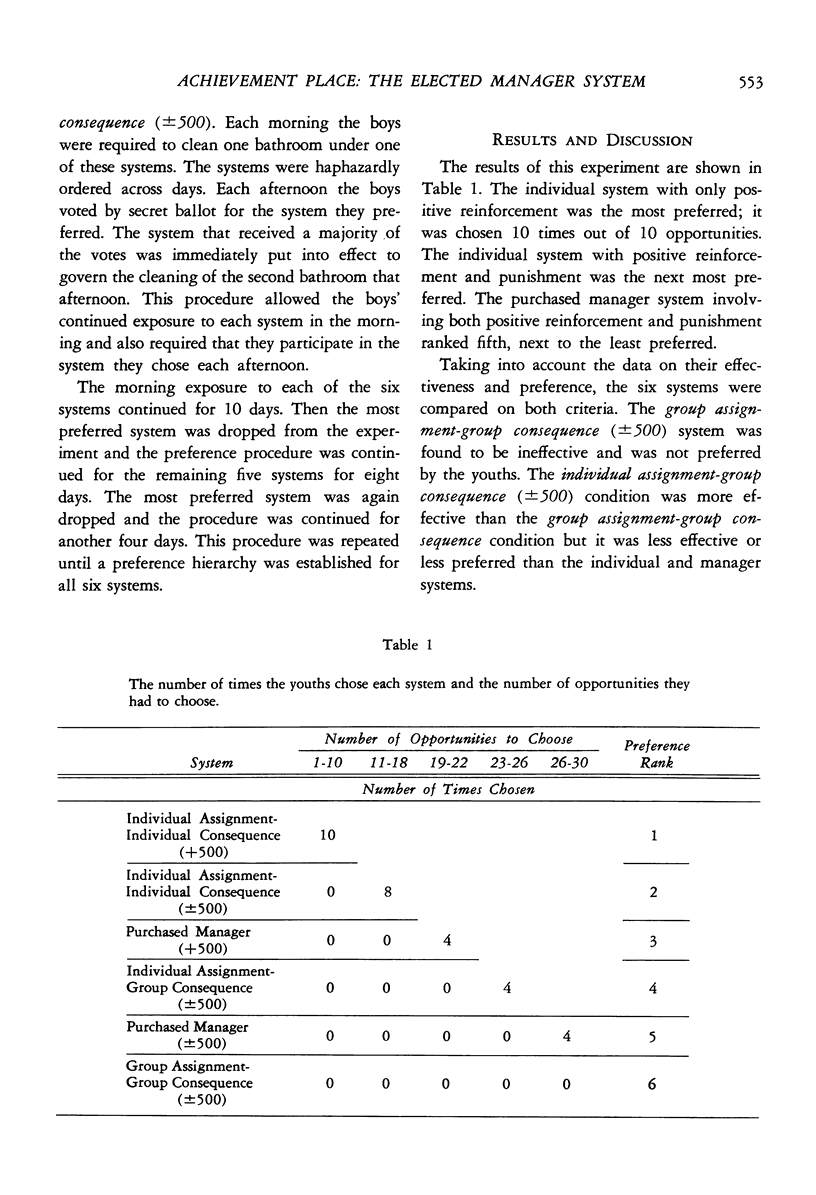
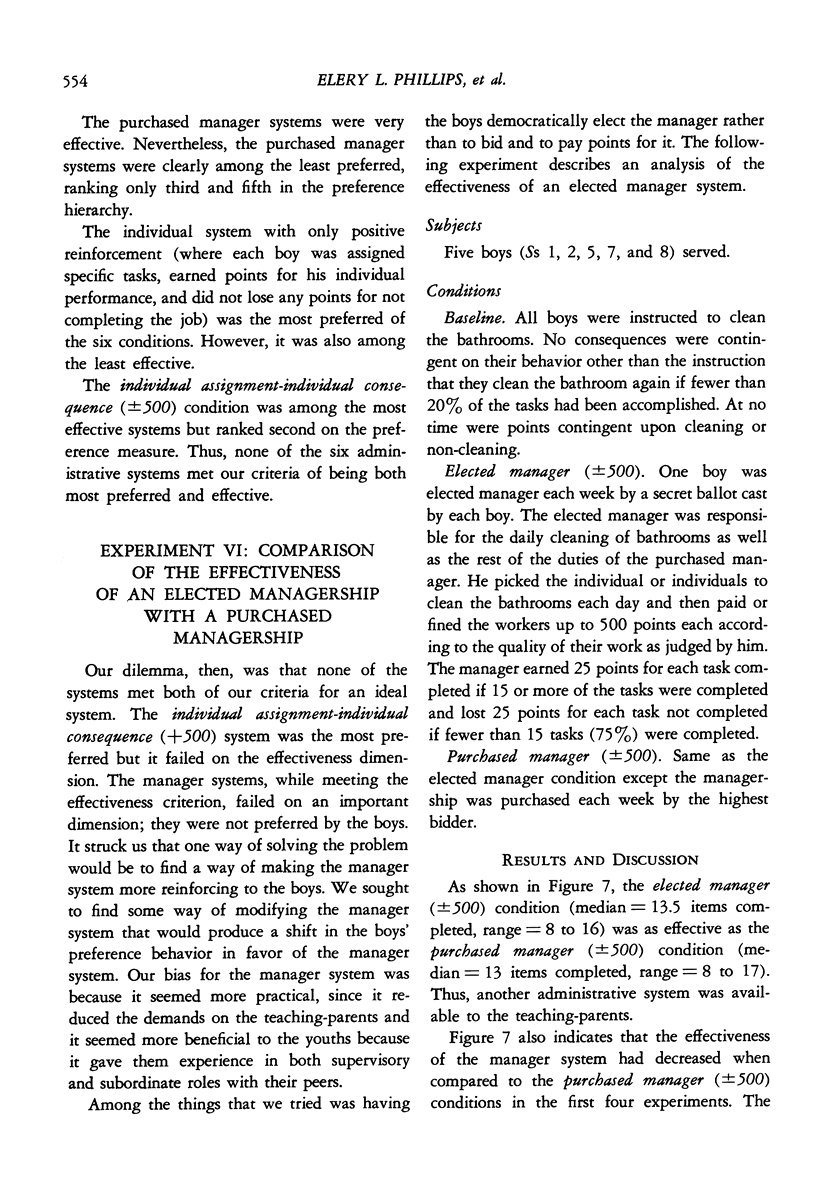
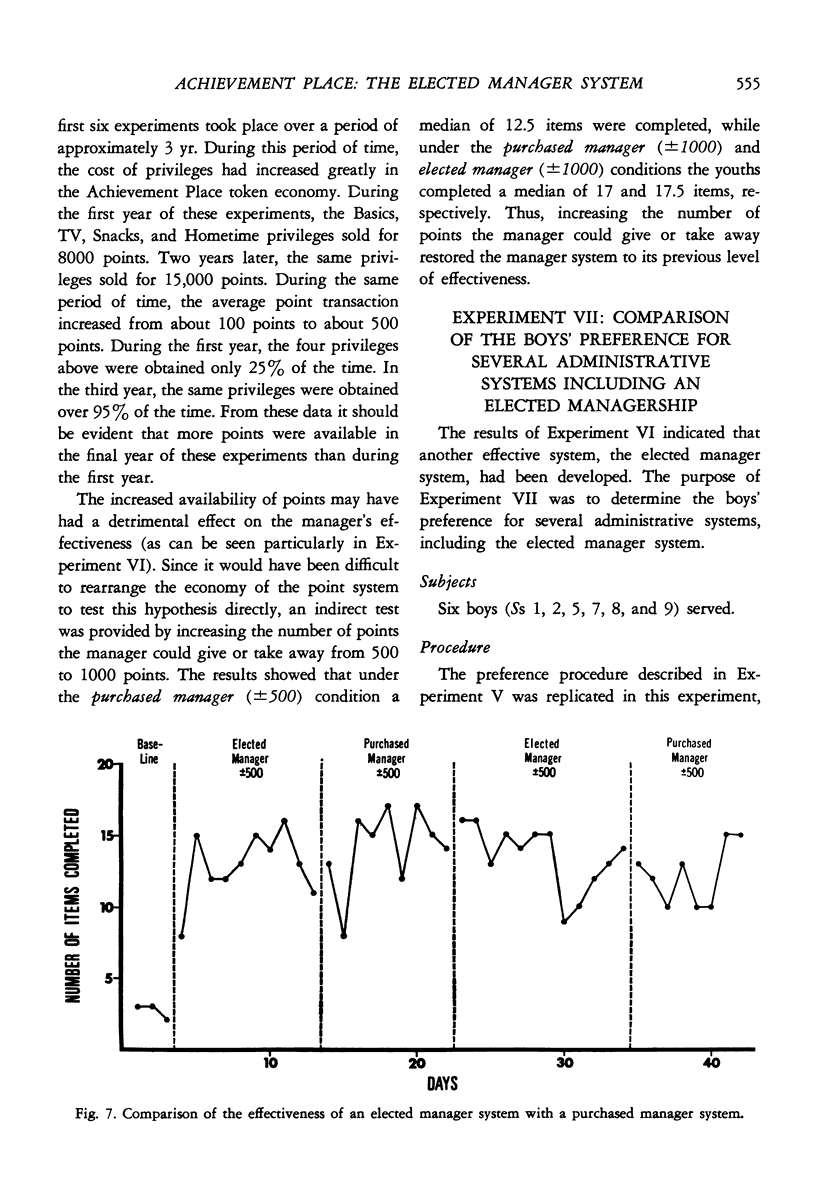
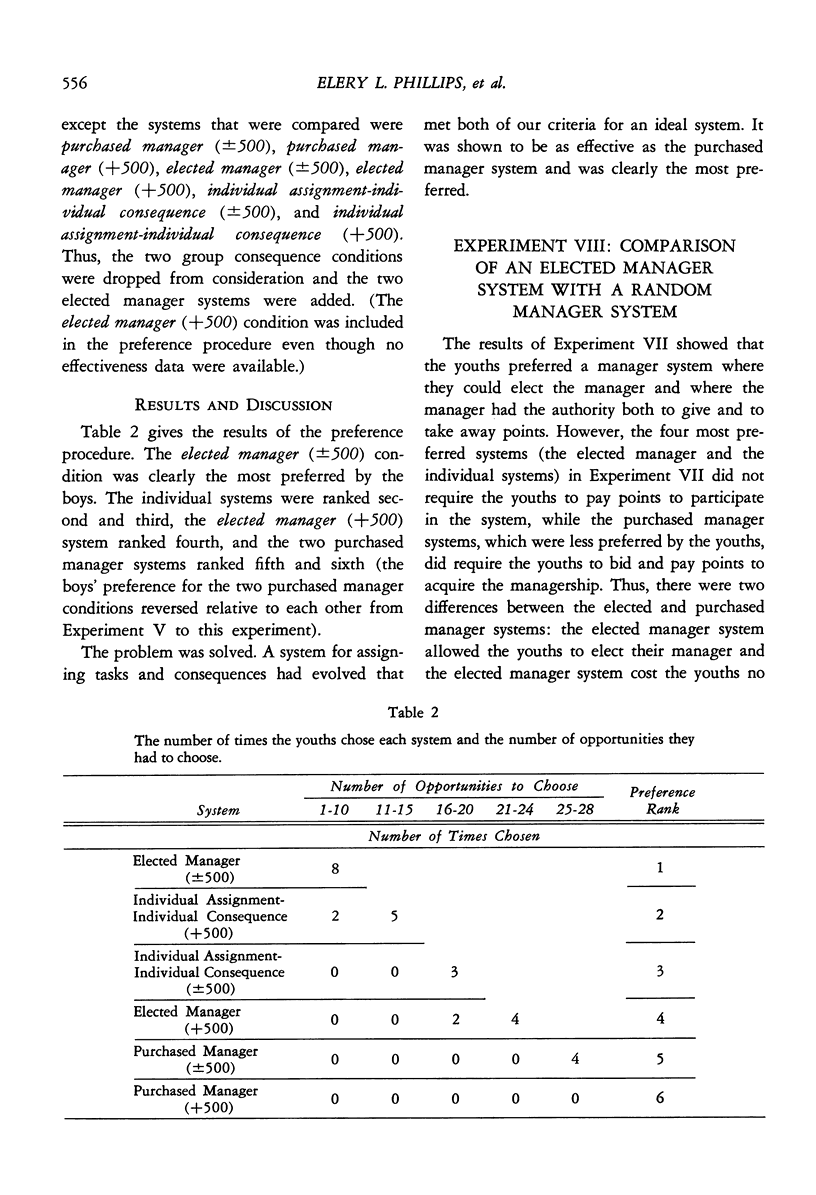
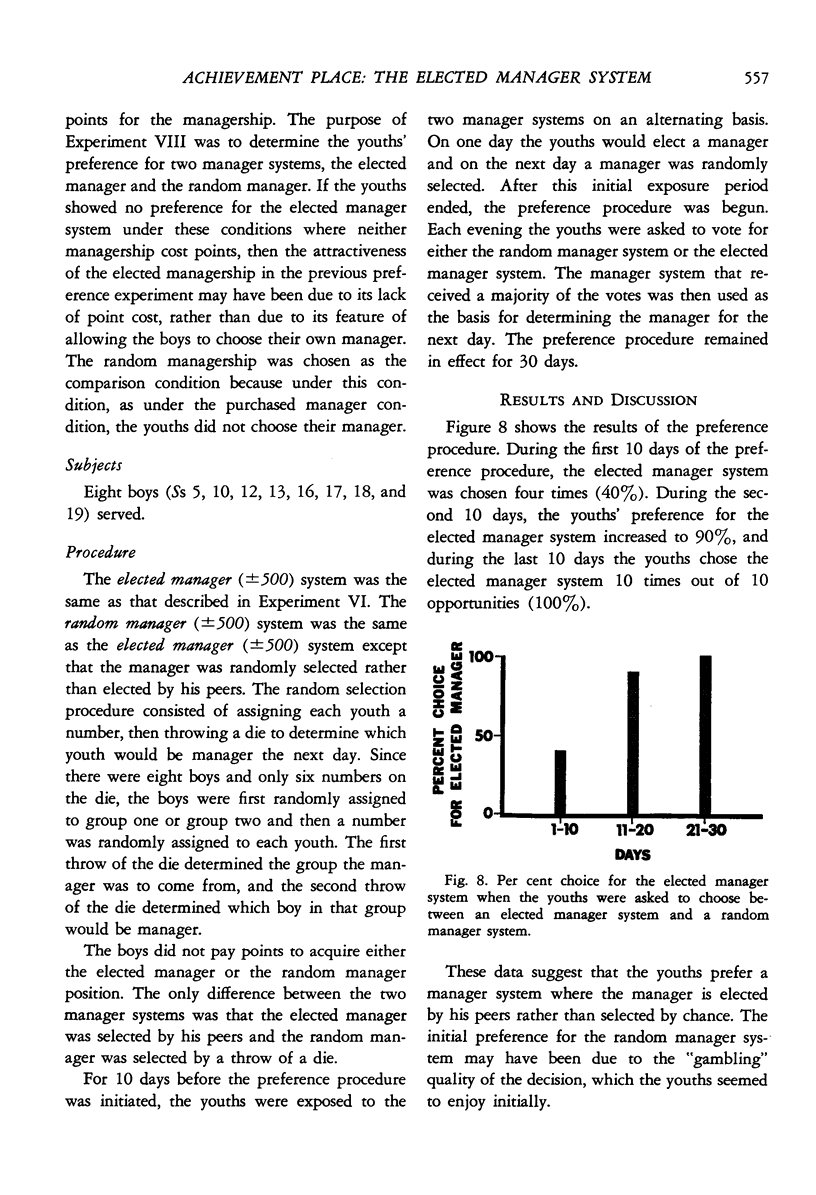
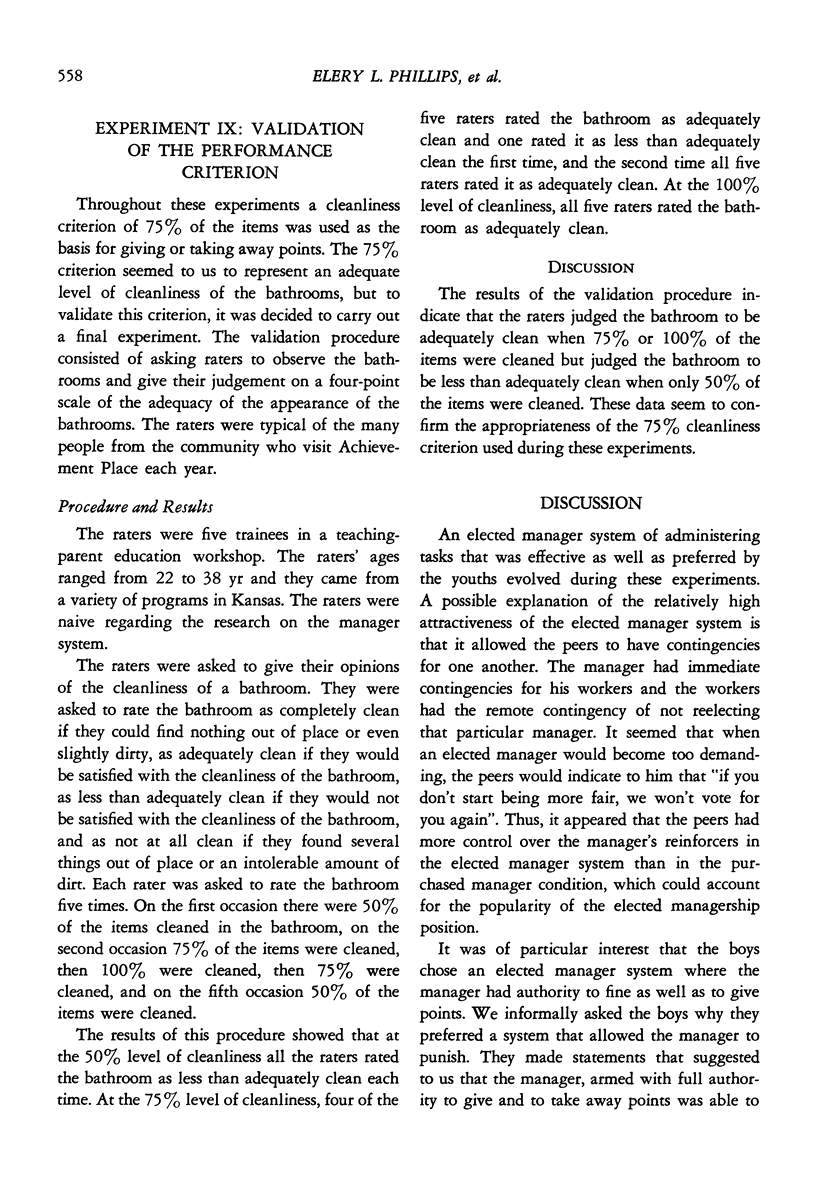
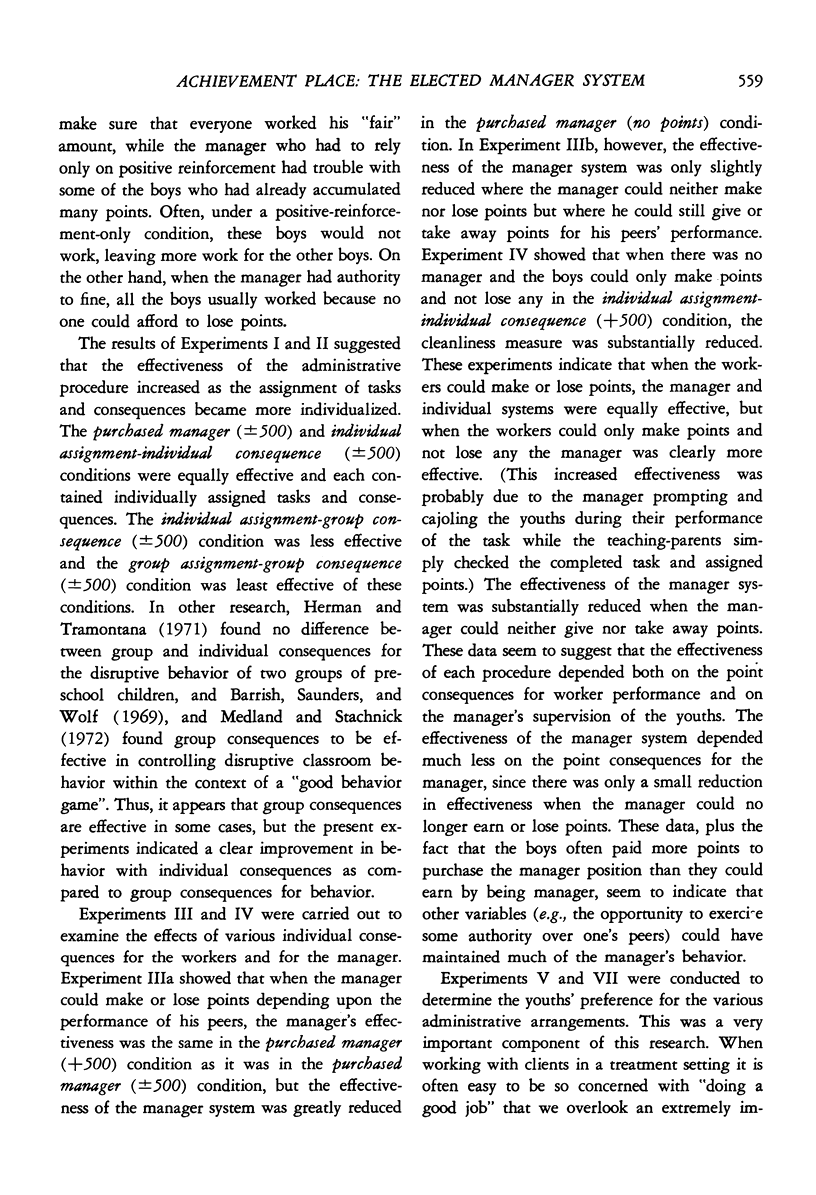
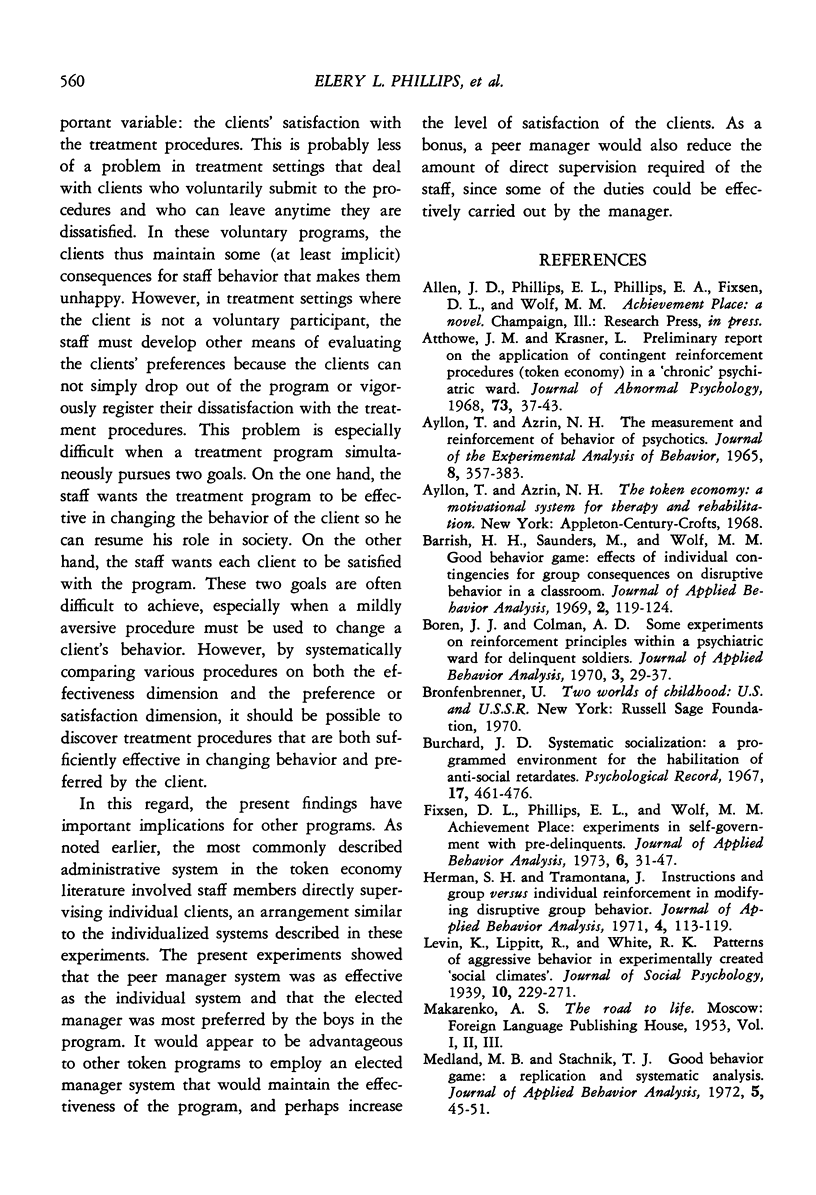
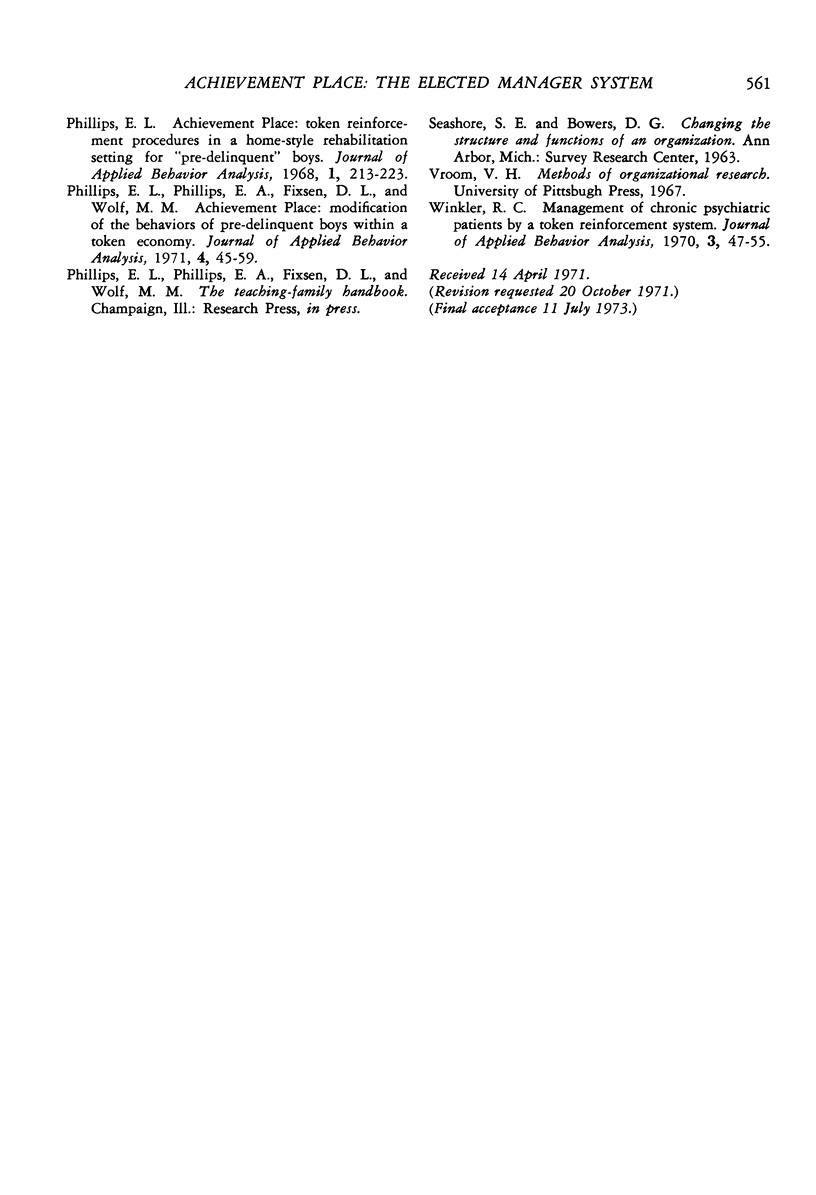
Selected References
These references are in PubMed. This may not be the complete list of references from this article.
- Atthowe J. M., Jr, Krasner L. Preliminary report on the application of contingent reinforcement procedures (token economy) on a "chronic" psychiatric ward. J Abnorm Psychol. 1968 Feb;73(1):37–43. doi: 10.1037/h0025439. [DOI] [PubMed] [Google Scholar]
- Ayllon T., Azrin N. H. The measurement and reinforcement of behavior of psychotics. J Exp Anal Behav. 1965 Nov;8(6):357–383. doi: 10.1901/jeab.1965.8-357. [DOI] [PMC free article] [PubMed] [Google Scholar]
- Barrish H. H., Saunders M., Wolf M. M. Good behavior game: effects of individual contingencies for group consequences on disruptive behavior in a classroom. J Appl Behav Anal. 1969 Summer;2(2):119–124. doi: 10.1901/jaba.1969.2-119. [DOI] [PMC free article] [PubMed] [Google Scholar]
- Boren J. J., Colman A. D. Some experiments on reinforcement principles within a psychiatric ward for delinquent soldiers. J Appl Behav Anal. 1970 Spring;3(1):29–37. doi: 10.1901/jaba.1970.3-29. [DOI] [PMC free article] [PubMed] [Google Scholar]
- Fixsen D. L., Phillips E. L., Wolf M. M. Achievement Place: experiments in self-government with pre-delinquents. J Appl Behav Anal. 1973 Spring;6(1):31–47. doi: 10.1901/jaba.1973.6-31. [DOI] [PMC free article] [PubMed] [Google Scholar]
- Herman S. H., Tramontana J. Instructions and group versus individual reinforcement in modifying disruptive group behavior. J Appl Behav Anal. 1971 Summer;4(2):113–119. doi: 10.1901/jaba.1971.4-113. [DOI] [PMC free article] [PubMed] [Google Scholar]
- Medland M. B., Stachnik T. J. Good-behavior game: a replication and systematic analysis. J Appl Behav Anal. 1972 Spring;5(1):45–51. doi: 10.1901/jaba.1972.5-45. [DOI] [PMC free article] [PubMed] [Google Scholar]
- Phillips E. L. Achievement Place: token reinforcement procedures in a home-style rehabilitation setting for "pre-delinquent" boys. J Appl Behav Anal. 1968 Fall;1(3):213–223. doi: 10.1901/jaba.1968.1-213. [DOI] [PMC free article] [PubMed] [Google Scholar]
- Phillips E. L., Phillips E. A., Fixsen D. L., Wolf M. M. Achievement Place: modification of the behaviors of pre-delinquent boys within a token economy. J Appl Behav Anal. 1971 Spring;4(1):45–59. doi: 10.1901/jaba.1971.4-45. [DOI] [PMC free article] [PubMed] [Google Scholar]
- Winkler R. C. Management of chronic psychiatric patients by a token reinforcement system. J Appl Behav Anal. 1970 Spring;3(1):47–55. doi: 10.1901/jaba.1970.3-47. [DOI] [PMC free article] [PubMed] [Google Scholar]


